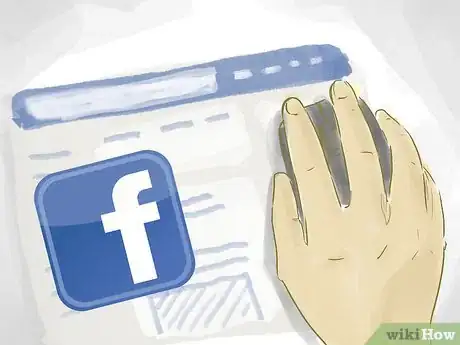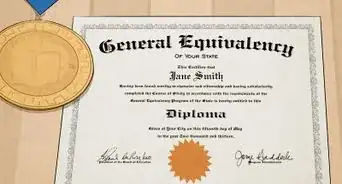wikiHow is a “wiki,” similar to Wikipedia, which means that many of our articles are co-written by multiple authors. To create this article, 13 people, some anonymous, worked to edit and improve it over time.
This article has been viewed 23,541 times.
Learn more...
Journalism has gone through many changes, since the start of the Internet age and the use of smart phones and videos to document news as it happens. While the financial health of newspapers remains in question, journalists must embrace the Internet and remain at the cutting edge of technology in order to improve their career and deliver accurate news. Journalism schools are changing the way they approach story-telling, with the rise of digital media. It is important to use technology as an aid to ethical, grammatical and effective journalism. This article will tell you how to use technology as a journalist.
Steps
Technology in Journalism Studies
-
1Get a good education in grammar, structure, sourcing, fact-checking and other journalism rules. Good quality writing and photography is still valued in the world of journalism. Technology should be used to enhance the already understood basics of ethical journalism.
- Journalism and writing are extremely competitive careers. The quality of your journalism and your tenacity to get good sources and write compelling articles will allow you to receive more money for your articles. You are also still more likely to get a job for a news company if you get a journalism degree.
- Elect to study internet technology (IT), photography or videography along with your journalism degree. This may help you get a job, or help you stay ahead of the curve as journalism changes.
-
2Use technology as a research tool. Most large libraries have digital collections of photos, news articles and more. The range of technology is large, from microfiche to a complete annotated digital collection of articles, books and more.
- You may need to pay or get an account in order to use many of the online and microfiche databases. Some of the materials can only be used inside the library.
Advertisement -
3Develop your digital story-telling abilities. This topic is now a part of many journalism schools. You must embrace the Internet, video and photographs as a part of your story telling, because those who master all these media are more likely to get published.
-
4Take journalism ethics courses. With the phone-hacking scandals of 2011, there are new perspectives to consider about how technology can be used to steal information. Hacking and other ways of getting information do not make them credible sources, and there are serious consequences for journalists who use these tactics.
-
5Understand that most articles will be published on the Internet. Even if you write or photograph for a newspaper or a magazine, your content will become part of that company's online content. Some content can be distributed free of charge, and some content requires people to have subscription.
Using Technology to Enhance Journalism
-
1Create Twitter and Facebook accounts to stay in touch with the "trending topics." These are often indicated by a hash mark "#" before the person posts something on their social media page. You can follow breaking news and see how it is affecting the public.
-
2Take advantage of the rise in the number of first-hand accounts. People use their cell phones and cameras to document news as it happens. You can employ older research techniques to track down these accounts, and get your news straight from eye-witnesses.
-
3Embrace the "comments" section of your digital articles. At 1 time, newspapers may have written editorials or readers would have written letters to the editor of the paper. Now, almost anyone can write a comment on your piece.
- In many cases, the more comments that you get on your article, the more in tune it is with what is important to readers today. It is important to have a good Internet moderator, to ensure inappropriate comments are removed so your article can be shared.
-
4Pay to have access to top-quality sources. Although most people research their information on wikipedia, it is important for a journalist to pay to access professional or scientific journals, top quality encyclopedias, census material and more. Do not cut corners on citing sources or researching online databases.
- There is a reason many top-quality sources make you pay or have subscriptions. They understand the value of good quality information. You may be able to expense it as part of your business costs.
-
5Create your own website that promotes your work. You can post your work or put links to it. Blogging about writing or journalism on your website may make you a more marketable journalist.
-
6Be creative in how you deliver the news. Gather video sources or photos as well as first hand accounts. Journalism is changing, which means that you can be at the forefront of a new way to deliver news online.
Community Q&A
-
QuestionHow can I create blog to share my articles online?
 Community AnswerYou can use Blogger or Wordpress as your blogging tool. (Wordpress is often preferred by professionals.) It can be slightly complicated if you are new to it, but it's not very difficult to figure it out as Wordpress has a lot of tools to help new users. For more tips, I would suggest reading through wikiHow's article on starting a blog.
Community AnswerYou can use Blogger or Wordpress as your blogging tool. (Wordpress is often preferred by professionals.) It can be slightly complicated if you are new to it, but it's not very difficult to figure it out as Wordpress has a lot of tools to help new users. For more tips, I would suggest reading through wikiHow's article on starting a blog.
Things You'll Need
- Twitter account
- Facebook account
- Large library research facilities
- Personal website
- Database subscriptions
- Videos
- First-hand accounts





































































